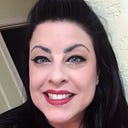Chapter 3 Nouns
What are nouns?
From grade school forward, we are told that a noun is a person, place, or thing. While this is a simple explanation of what a noun is; it leaves a lot to question in the medical world. For example, is a disease a noun? Or, what about a group of diseases are they nouns? How about an or alias such as John Doe, is that a noun? I don’t want to get into the details of nouns just yet, the basic idea, for now, is that a noun is something that names a person, place, thing or idea.
Subcategories of nouns
Logically I think it is best to list some categories of nouns:
1. Abstract noun: things you cannot see or touch (joy / bacteria)
2. Animate nouns: human, animals and bacteria
3. Collective nouns: a word used to describe a group (team — choir — practice)
4. Compound nouns: more than one word (pick-pocket — tight-laced)
5. Concreate noun: things you can see or touch (teeth)
6. Human noun: a noun that is a human (he/she)
7. Inanimate noun: nonliving noun (chair/table)
8. Nonhuman noun: non-human noun (cat/dog)
9. Mass nouns or also known as countable nouns: (food/music)
10. Gender-specific nouns — works which are male or female (actor/actress)
11. Verbal nouns: derived from a verb (build — building) these have a special place in medical lingo
12. Proper noun: a direct name of a person, place, thing or idea: (Dr. Mendez/Nurse Jackie
13. Pronouns: used in place of a noun, or to replace a noun, again, then are very common in medical terminology
What is a nouns phase?
A noun phase is a small collection of words around a noun. Generally, this collection of words cannot stand on its own. Commonly built from a noun and a modifier. (heart disease vs. mild heart disease).
Noun phase = Predeterminer + Determiner + post determiner + noun
(a determiner is noun or noun phase plus the possessive clitich (the ‘s) which shows a relation).
The cat is eating the dog’s food
The bowl is the dog’s
The two parking lots are the hospital’s
· What is a noun phrase? What does a noun phase do? A noun phrase functions in the same way as a noun. It contains a noun or pronoun and it modifies (describes) the noun.
· Verbal nouns and gerunds: Gerunds end in -ing but not every word that ends in -ing is a gerund. A gerund is a noun formed from a verb. A verbal noun is a noun that has no verb like qualities. The basic idea is a verbal noun is taking a verb and converting it in to a noun. This makes it lose all the verb property and it only has noun property.
Verb= to build. Verbal noun= building
Gerund = playing, acting, moving
Noun-a word that names a person, place, thing, or idea
Noun Phrase-a noun and any words in the sentence that modify it; words that can modify nouns include articles (a, an, the); adjectives; participles; and possessive pronouns
A noun phrase can be a single word-just the noun-or more than one word.
Noun phrases can function in several different ways in a sentence. Some of the most common functions of noun phrases are listed below.
1. A noun phrase can be a subject:
2. A noun phrase can be a direct object:
3. A noun phrase can be the object of a preposition:
4. A noun phrase can be an indirect object:
Examples of Noun Phrases:
a yellow house a skate board the glistening snow
Each of these phrases contains a noun (house, board, snow). The other words modify the noun.
Examples of noun phrase as subject: The yellow house is for sale.
The glistening snow covered the field.
Examples of noun phrase as direct object: I want a skate board.
Should we buy the yellow house?
Examples of noun phrase as object of preposition: Jeff rode on a skate board.
Karen lives in the yellow house.
Example of noun phrase as indirect object: Lisa gave the little boy a candy.
